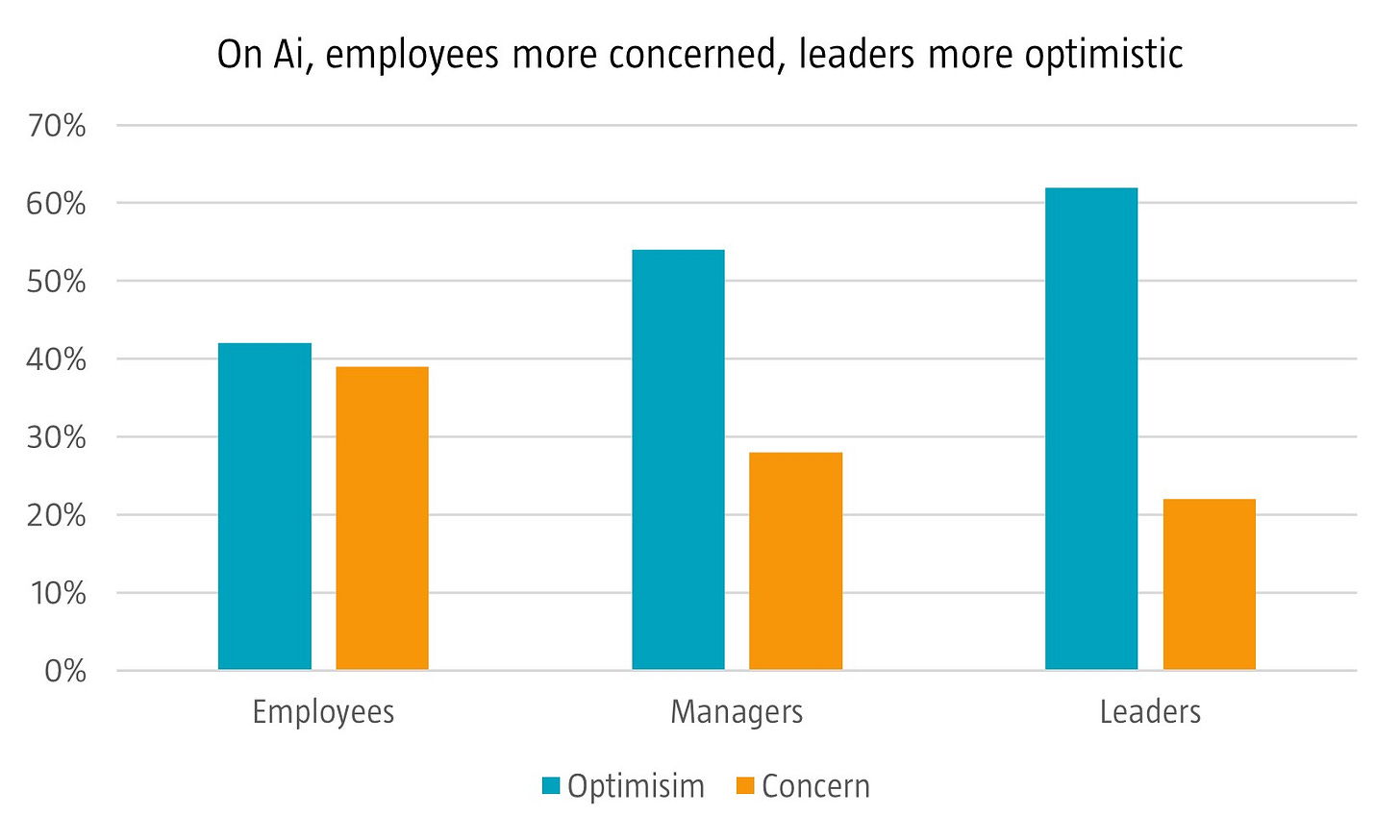Jevons paradox
In the mid 1800s, advancements in steam engine technology led many market observers to conclude that coal demand would drop, as less of the resource was needed to power the machines. However, the economist William Jevons correctly predicted that coal demand would increase as steam engines could be employed profitably in a broader set of applications. Thereafter, the Jevon Paradox describes how efficiency will increase rather decrease the usage of relevant inputs. Jevons Paradox can be applied to many new technologies. For instance, demand for accountants continued to expand with the advent of calculators, spreadsheets, and software. Today, as advancements in artificial intelligence accelerate, many fear the technology could replace their job. Indeed, a survey conducted by the Boston Consulting Group this year found that corporate leaders and managers are more optimistic about AI, while workers are less so. For a longer discussion on the outlook for AI, please listen to our recent podcast.
Source: BCG, June 2023


